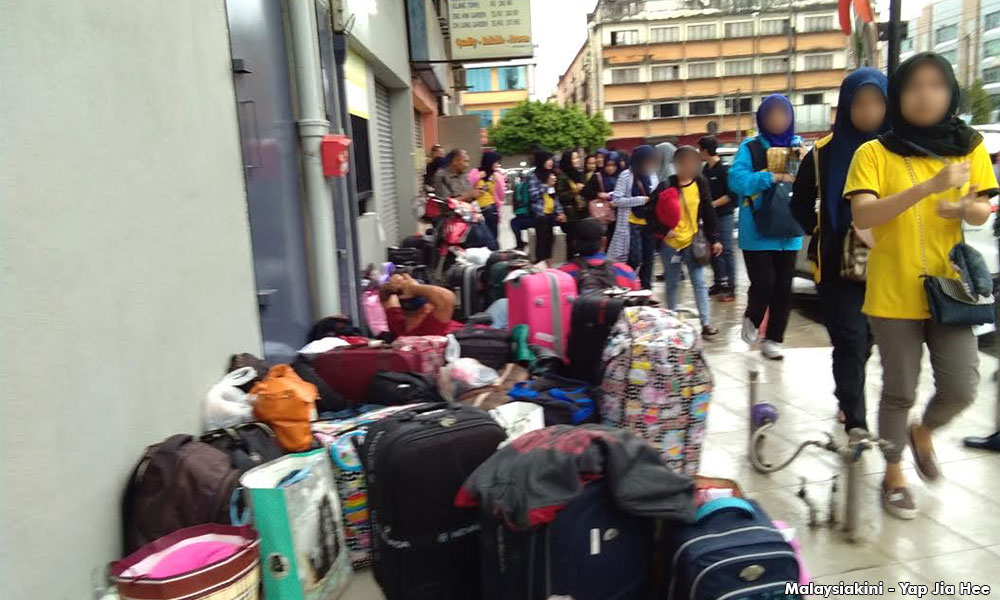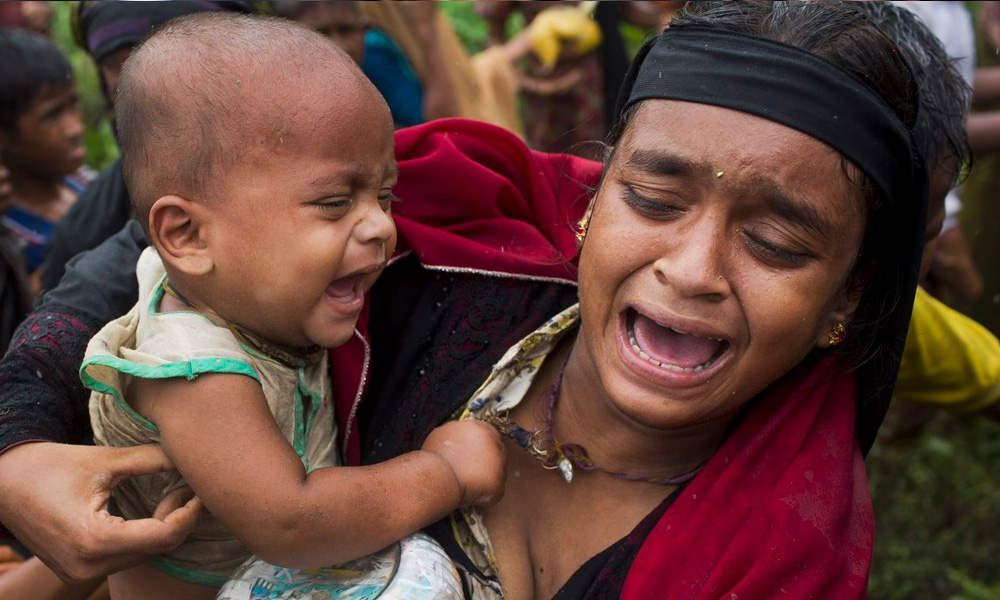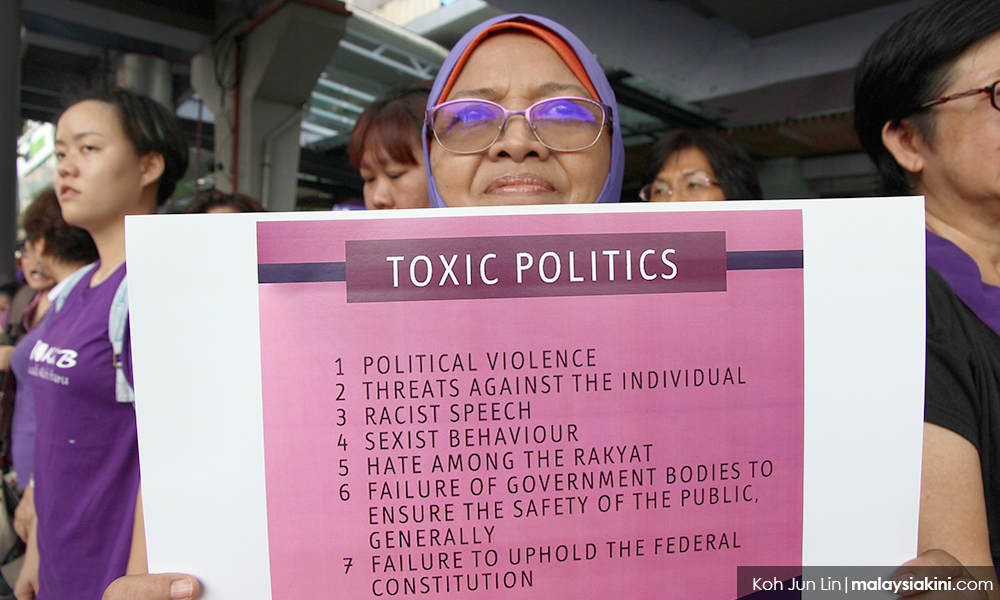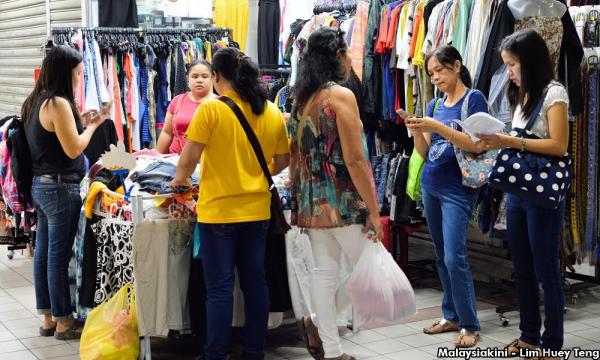LETTER | From Nov 25, the International Day for the Elimination of Violence against Women, to Dec 10, Human Rights Day, the 16 Days of Activism against Gender-Based Violence Campaign is a time to galvanise action to end violence against women and girls around the world.
This year’s overarching theme is “Leave No One Behind: End Violence against Women and Girls” - reflecting the core principle of the transformative 20-30 agenda for sustainable development.
Since 2014, the official colour of this campaign has been orange, symbolising a brighter future and a world free from violence against women and girls.
Today Tenaganita closes the Campaign with the Event: Nurturing Respect – Fighting Against SGBV - Sexual Gender Based Violence.
Working towards ending gender-based violence (GBV)
Gender-based violence is a multifaceted issue that manifests in many different ways; be it physically, mentally, sexually or even economically. Perpetrators range from intimate partners to strangers. The high frequency of such cases is of serious concern.
In fact, the World Health Organisation estimates that globally, 1 in 3 women have experienced some form of physical/sexual violence in their lifetime. Violence towards women, girls or non-conforming gendered individuals happens all too frequently, be it within high-end, financially well-off communities or underprivileged communities struggling to make ends meet.
Although gender-based violence is something that can impact any woman irrespective of age, economic standing or nationality, migrant and refugee women are particularly at risk as displacement and insecurity makes them more vulnerable to physical, emotional and/or sexual harm. Facing such harm can greatly detriment women’s physical and emotional well-being and further impact other aspects of their lives.
Refugee and Migrant Women
There are many realities faced by women migrant workers that we need to ponder upon. Women migrant workers (domestic workers and others) experience various sexual misconduct in the workplace, ranging from sexual harassment, molestation and rape.

The pursuit of justice in severe cases like rape has not resulted in satisfactory outcomes or retribution for the survivors in Malaysia to date. In fact, they experience more loss, grief and trauma upon realising that the perpetrators are able to walk away with impunity. At times, they experience distress and trauma long after they return to their families in their homelands.
Additionally, current regulations prohibit women migrant worker from procreating while they are working in Malaysia. As a result, women migrants who have fallen pregnant are forced to get an abortion which clearly violates her reproductive rights, notwithstanding the fact that she is criminally charged for her abortion.
Furthermore, there have also been many cases of women migrant who were criminalised when found engaging in the sex industry irrespective of whether their involvement was as a result of trafficking. These cases reflect the absence of belief in gender equality that is clearly ingrained in many factions of our society; be it employers, colleagues or law enforcement bodies including the State.
Among the women migrant workers population, one of the most vulnerable to sexual and gender-based violence are domestic workers.
Due to the sore lack of general protection enforced on domestic workers, regular occurrences of passport confiscation and restricted mobility allows employers to further exploit these women.
The social norms which render women migrant workers to be seen as comparatively weaker and more submissive allows their employers to carry out a multitude of sexual and gender-based violence.
Almost all women migrant workers have experienced verbal abuse. This form of abuse affects the mental health of an individual which often leads to fear. The assumption of domestic workers’ physical and social inferiority leaves them at the mercy of their employers.
Unfortunately, it is also not uncommon for domestic workers to be victims of sexual abuses such as harassment, molestation and rape, especially when their limited freedom of movement and communication are wrongfully imposed.
Refugees and asylum seekers also face an abundance of struggles in order to simply survive in Malaysia; from negative perceptions harboured by locals to being unable to work or attain an education legally. Most pertinent, however, is the constant fear of being arrested and detained, even with documentation supporting their statuses from the UNHCR. Many individuals who are fleeing genocide, conflict and war, live through a constant cycle of being arrested, detained and released, only to be sold to human traffickers.

One of the unfortunate forms of sexual and gender-based violence which occurs through this cycle is when young women refugee/asylum seeker is trafficked into the sex trade or sold as child brides. Some cultures, unfortunately, promote practices and attitudes such as sexual discrimination and domestic abuse, to more extreme forms of exploitation and abuse, such as child marriage and female genital mutilation.
This is on top of the sexual and gender-based violence inflicted upon them before fleeing to Malaysia.
Our encounters with refugees, especially women refugees resulted in the surfacing of some realities including that early marriage among Rohingya women are rampant. Many young women are deprived of opportunities to obtain education by either the lack of educational services accessible to them or their families keeping them away from education. This extends to opportunities given to women to be involved in paid work.
These factors result in refugee women being overly dependent on their husbands. Rohingya women are also exposed to the risk of extortion, sexual assault, physical assault and trafficking. There are currently little to no long-term resettlement avenues for the Rohingya people.
Within such a context of uncertainty and abundance of life stressors, the tendency to be subject to abuse and violence escalates which leaves refugee women and children extremely vulnerable to gender-based violence. The Rohingya women who have been surviving a range of abuses including verbal, physical, emotional, economic, social, and sexual have shared views that family and marriages have become a form of survival to them and whilst some liken the experience to being imprisoned.
Preliminary findings of a research jointly conducted by Tenaganita and the Colorado University have discovered that both men and women of the Rohingya community in areas of Gombak acknowledged that physical, verbal and emotional abuse happens within their families.
Almost half the participants reported that children have witnessed violence in the family and close to 70 percent of them have witnessed their fathers or male relatives beat their mother/sisters before they reached 18 years of age.
However, we should not forget that sexual and gender-based acts of violence do not solely occur in refugee and migrant populations. Issues stemmed and fuelled by embedded patriarchal views and traditions affect local families just as much as they do with other groups of families.
From emotional abuse to the most brutal cases of physical abuse, it seems that violence has been internalised, manifested as well as institutionalised in every aspect of our society. At the root of the phenomenon of gender-based violence are ideas of male superiority and male sexual entitlement that are deeply entrenched in our communities. Thus, the continued existence of gender-based violence in the world today is deplorable as such misogynistic ideas are archaic.
Nevertheless, the prevalence of gender-based violence indicates the need for the Malaysian Government to create legal protective mechanisms and to strictly uphold the rights of women. Additionally, we as a society need to overturn socio-cultural norms that privileges men over women and should further empower women through education, allowing them financial independence and fostering non-hierarchical familial relationships.
A call to action
Apart from daily life stressors and the struggles faced by refugees, migrant workers and victims of human trafficking, there is an alarming level of tacit acceptance of violence in our society so much so that it has manifested into becoming a social norm which allows abuse and oppression to take place. In this situation, we urge others to nurture mutual respect to fight against gender-based violence.

Let us start by recognising the outdated social norms that encourages such act of gender-based violence and acknowledge the detrimental effects it has on society as a whole. Take interest by talking about these issues, forming proper discourse and staying solution focused, and do not succumb to being simply a bystander when you see an incident occur before you.
We should also actively educate ourselves and the people within our community, especially young children, to practice mutual respect.
Together, we can create and foster a safe environment for girls and women, here in Malaysia and the world as a whole.
The views expressed here are those of the author/contributor and do not necessarily represent the views of Malaysiakini.


